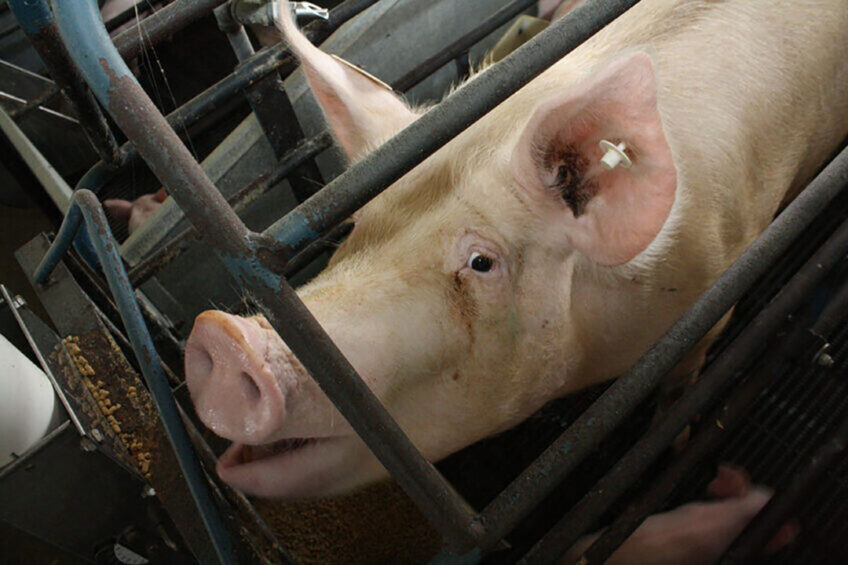2 new legal briefs in Proposition 12 developments

2 new legal briefs were filed in the lawsuit challenging California’s Proposition 12;. They will go before the US Supreme Court on October 11.
Voters passed Prop 12 in California in 2018. Also known as the Farm Animal Confinement Initiative, it has been under fire from the US pork industry ever since.
These laws, passed in January 2022, require that animals held in buildings in California, such as breeding sows, veal calves and laying hens, ‘be housed in confinement systems that comply with specific standards for freedom of movement, cage-free design and minimum floor space’.
Each breeding sow, for example, must have 24 ft2 of space and gestation crates are not permissible. However, Prop 12 reaches across the entire US.
Country-wide
Prop 12 prohibits any business from knowingly engaging in the sale within the state of California of whole pork meat, whole veal meat and shell/liquid eggs from pigs, veal calves or poultry if farmers house them in a manner contrary to Prop 12 housing standards.
There are few very pork farms or pork product makers in California. The state represents about 15% of the US pork market, so Prop 12 affects many pork firms across the country.
2 of the largest US pork companies, Tyson Foods and Hormel, have stated they will comply with Prop 12.
Seeking to influence the US Supreme Court
In June, the National Pork Producers Council and other farming group filed a brief with this Court arguing that Prop 12 violates the US constitution’s Commerce Clause, which restricts states from regulating commerce outside their borders.
Later in June, the U.S. Solicitor General requested the Court strike down the part of Prop 12 that bans the sale of pork in California from hogs in housing systems other than those described in the law.
New brief
On August 24, the ‘Socially Responsible Agriculture Project’ (SRAP) submitted an ‘Amicus Brief’ to the US Supreme Court supporting Prop 12. SRAP is a group that fights against “the damages caused by industrial livestock operations.”
SRAP filed the brief on behalf of 17 organisations across the country. The project demonstrates how California’s Proposition 12 benefits independent and sustainable U.S. farmers.
In the release, Greg Gunthorp of Gunthorp Farms based in LaGrange, Indiana and board member of the Indiana Farmers Union, said that the petitioners seeking to strike down Prop 12, “many of which are multinational corporations who are foreign-owned, are enjoying record profits while many small farmers struggle to make ends meet. In fact, between 1993 and 2012, the U.S. lost about 70 percent of its hog operations.”
SRAP states that Prop 12 recognises that the market for sustainably raised pork is growing, prioritises crate-free operations, and fosters healthy competition and economic opportunities for small, independent farmers.
“This filing with the court points out that many farmers were already compliant with Prop 12 before it passed. Others have invested to become compliant. SRAP and its partners believe laws like Prop 12 disrupt the stranglehold agribusiness has on the industry. These laws will create opportunities for America’s independent family farmers.”
Another brief in support
On August 15, Harvard Law School’s Animal Law & Policy Clinic also filed a brief with the Supreme Court in support of Prop 12.
Harvard filed the brief on behalf of a coalition of animal protection organisations and law professors. These include San Francisco Society for the Prevention of Cruelty to Animals, The San Diego Humane Society, Marin Humane, Mercy for Animals and Rise for Animals.
New Zealand development
Meanwhile in New Zealand, the pork industry is proposing pig farming alternatives to what it calls the ‘unworkable plans’” for animal welfare proposed by the federal government.
NZ Pork CEO Brent Kleiss said his organisation’s proposals include reducing maximum time in farrowing crates, increasing the minimum space for grower pigs and eliminating mating stalls for housing sows.







